Pollen Allergies: Symptoms, Prevention, and Treatments
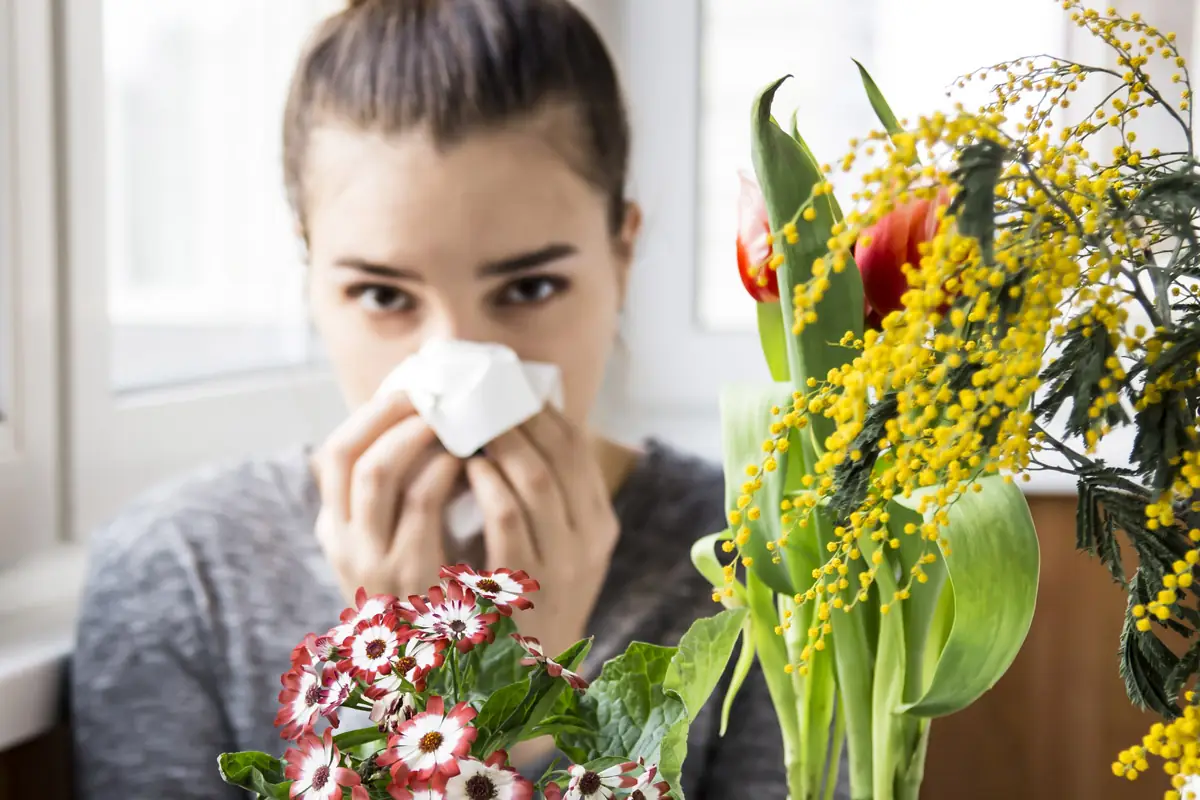
How can you tell that you suffer from pollen allergies? What symptoms of this condition should you know? How can you reduce the severity of your allergic reaction, and what medications can you use?
Read on, and you will find the answers to all these and numerous other questions.
Typical Symptoms
Allergies caused by pollen (they are also often called seasonal allergies) usually produce the following symptoms:
- runny, congested, and often itchy nose
- sneezing
- red, itchy, puffy, watery eyes
- itchy throat (caused by excessive mucus irritating the back of the throat)
- dry coughing (due to the irritated throat)
- headache
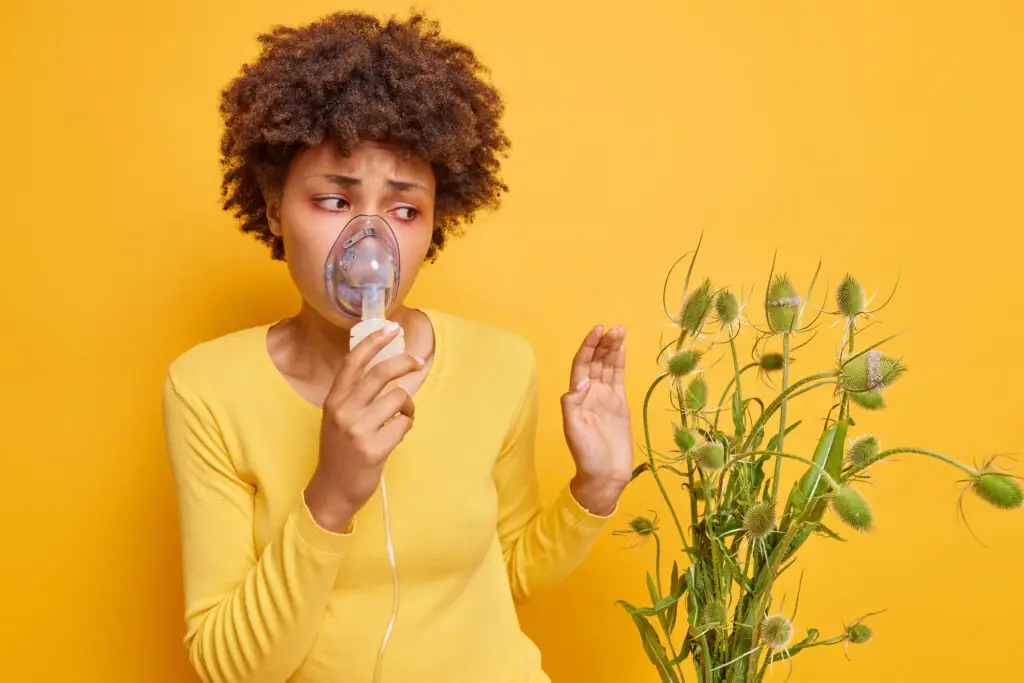
If you suffer from asthma, seasonal allergies can worsen your existing symptoms and lead to wheezing and difficulty breathing.
What Causes Seasonal Allergies?
Pollen is a fine powder that many plants produce for reproduction. Some trees and grasses rely on wind to spread their pollen: as these tiny particles hang in the air, you can easily breathe them in or get them on your skin and mucous membranes. Once in contact with your body, pollen releases proteins: although they are usually harmless, your immune system can mistakenly recognize them as dangerous and begin to release histamine, which in its turn leads to you experiencing allergic symptoms.
Pollen Types
There are numerous plants that release wind-carrying pollen:
- Grasses (like Bermuda, Johnson, Kentucky blue, Timothy, and various others)
- Trees (like alder, ash, beech, birch, elm, oak, poplar, walnut, and numerous others)
- Weeds (ragweed — a very common allergen, tumbleweed, sagebrush and others)
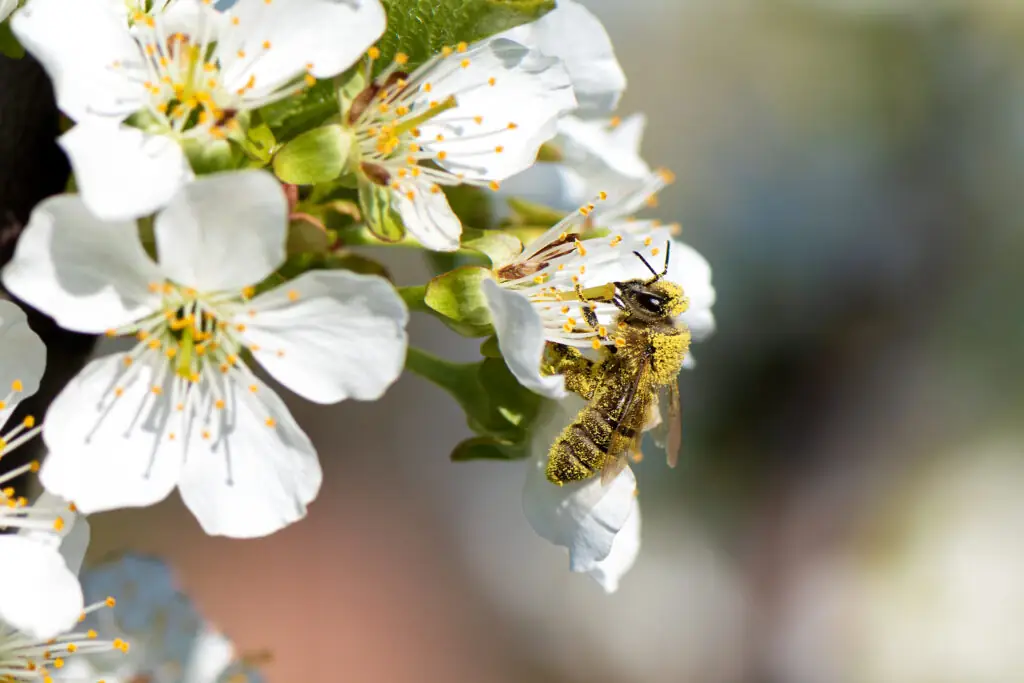
Prevention
Prevention is better than cure, and there are many ways in which you can reduce the severity of your symptoms:
- Keep your windows closed at all times when there are high levels of pollen in the air;
- Clean your home as often as possible; vacuum cleaners with water filters are especially efficient in removing dust and allergens from the floor and other surfaces;
- Regularly replace air filters in your air conditioners;
- Take a shower after coming inside to get rid of allergens on your hair and skin. You can also benefit from taking a shower right before going to bed.
- Similarly, right after coming inside, you also need to change clothes.
- Change your bedclothes as often as possible.
Pollen Allergies: Medical Treatment
When it comes to science-based medical treatments, there are several options you can choose from:
- Benadryl (diphenhydramine) and other first-gen antihistamines. Their most significant side-effect is the drowsiness they cause in many people.
- Claritin (loratadine), Zyrtec (cetirizine), and other second-gen antihistamines. They do not cause drowsiness but sometimes have an unpleasant side-effect of making your throat feel dry.
- Pulmicort (budesonide), Avamys (fluticasone furoate), and other steroid nasal sprays (normally require a doctor’s prescription) that reduce inflammation (as well as swelling and excessive mucus production it causes) in your nasal passages.
- Nasal decongestants like Benzedrex (propylhexedrine) or Sudafed (pseudoephedrine) can help relieve nasal congestion (but only for a short-time).

In severe cases patients are often advised to undergo immunotherapy in the form of the so-called allergy shots. These shorts resemble vaccines in their action: each injection contains a very small amount of the allergen you are sensitive to, and over time your body becomes immune to it.
Normally, you need to take these shorts twice per week for about 3-6 months to build up immunity and then receive injections once or twice per month for 3-5 years so that this immunity is not lost. It can take up to one year before you see any results from immunotherapy, so you might still need the above-described medications during this term.
Pollen Allergies: Home Remedies
In addition to scientifically tested medications like antihistamines and steroid nasal sprays, you can also try these popular home remedies:
- Flush the nasal passages using a warm saline solution. There are special saline irrigation tools on the market that can make this procedure easier;
- Take vitamin C capsules: vitamin C is known to have antihistamine properties;
- Try drinking herbal teas (stinging nettles, ginkgo, yarrow, and milk thistle are the more popular choices).
- Eat raw honey: there is a hypothesis that honey reduces the sensitivity of your immune system to pollen (i.e., it is similar in its action to allergy shots). Still, if you are allergic to honey or have diabetes, this option can do more harm than good.
- Take capsules with spirulina: this type of blue-green algae is believed to be beneficial for health.
Unfortunately, there is no scientific proof that these home remedies are really effective. Still, there are people who claim that they work for them, so some of these remedies may also be of help to you.
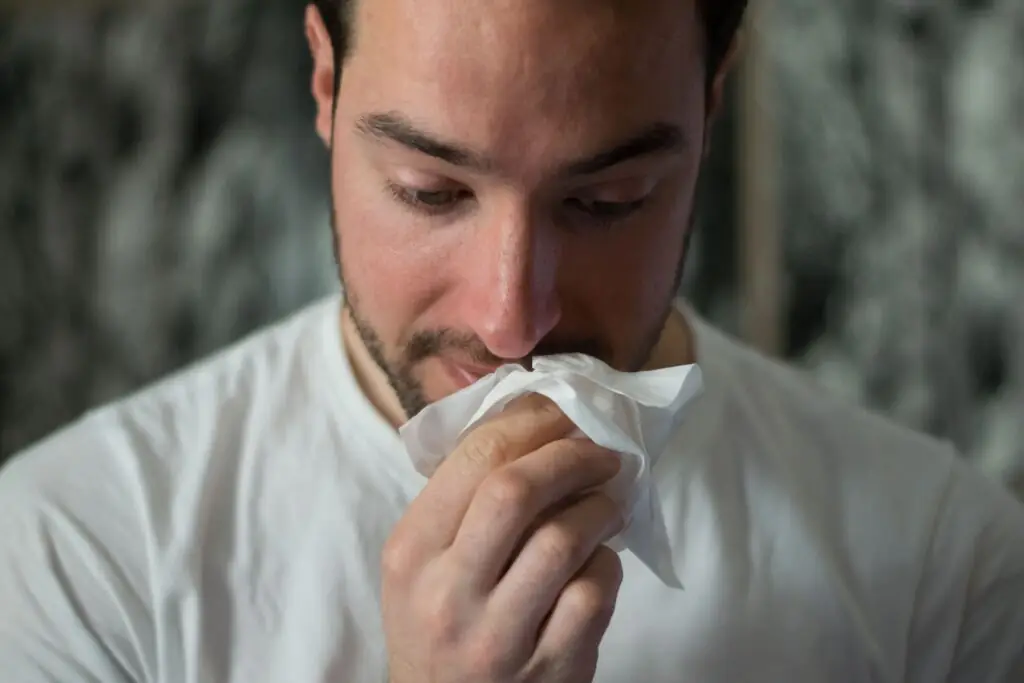
Seasonal Allergies: an FAQ
In this section you will find the answers to the most common questions about seasonal allergies.
Can Pollen Allergy Have an Effect on Eyes?
Watery, itchy, red, puffy eyes are one of the most common symptoms of this condition. Do not rub them, as it will only do harm.
Can Pollen Allergy Have an Effect on the Skin?
Severe seasonal allergies can produce such symptoms as raised reddish bumps on the skin that can also be very itchy. Sometimes there is a network of them. Do your best not to scratch them, as doing this can lead to developing a skin infection.
Can Pollen Allergies Cause a Sore Throat?
An allergic reaction causes excessive mucus production in the nose. Some of the mucus gets into the throat (the so-called ‘postnasal drip’) and irritates it, which in its turn leads to a cough. So, the answer is yes, a sore throat and a ‘barking’ or ‘hacking’ dry cough are among typical (although somewhat less common compared to sneezing) symptoms of seasonal allergies.
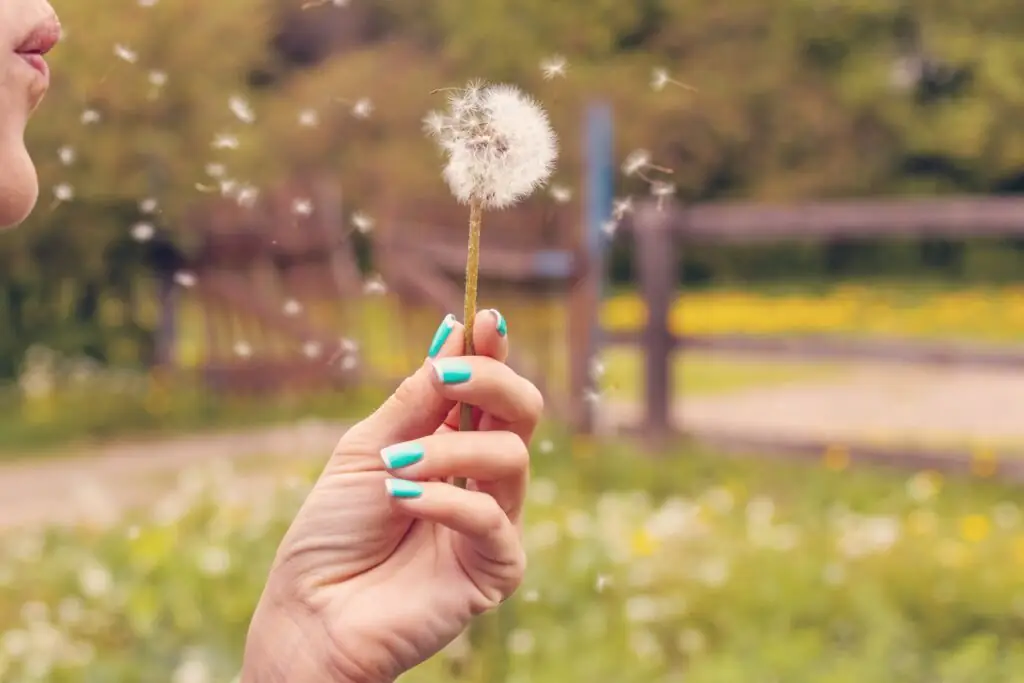
Can Pollen Allergies Make You Tired?
Yes, they can:
- First, the constant production of histamine overloads and weakens your immune system, which makes you prone to various other infections and illnesses.
- Second, a stuffy, swollen nose is such an unpleasant symptom that you find yourself unable to think clearly.
- Third, first-gen antihistamines often make you drowsy.
- Fourth, if you cannot breathe properly during your sleep, you end up waking up numerous times during the night, your sleep gets shallow, you don’t get enough rest, and you wake up in the morning feeling tired.
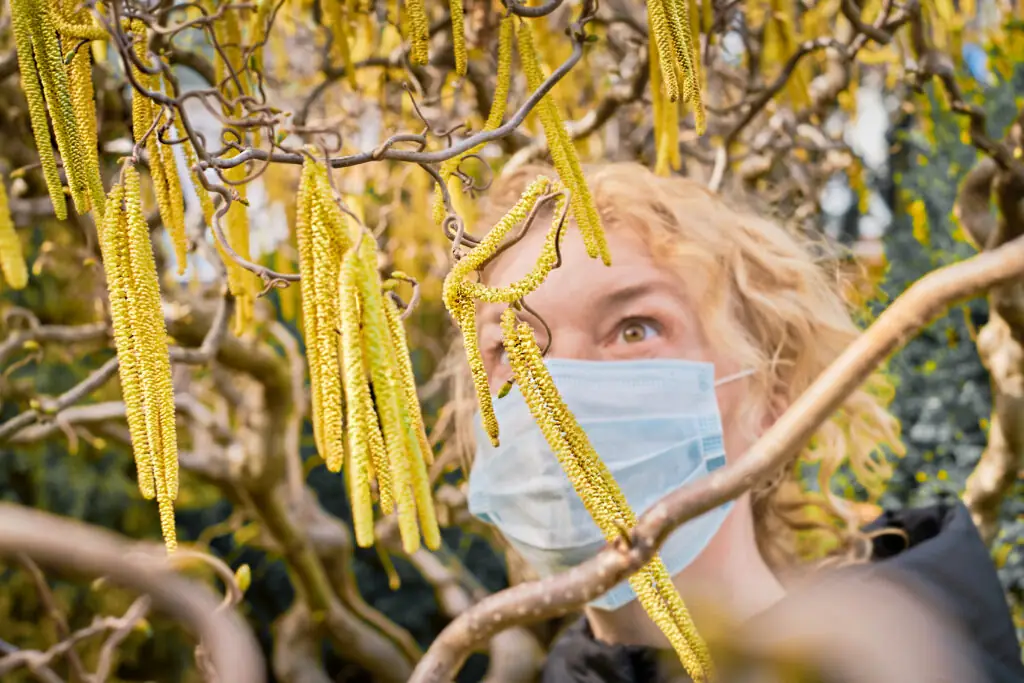
Can Pollen Allergies Cause Such Symptoms as a Headache?
Tiredness and impossibility to concentrate because of nasal congestion often lead to a headache.
Why Are Pollen Allergies Worse at Night?
First, if you have a runny, congested nose, your sleep quality declines dramatically. What’s more, even if you manage to fall asleep, you often cannot breathe in enough air, so both your lungs and heart suffer because of the lack of oxygen. All these factors combined lead to a subjective perception that your allergy got worse.
Can Pollen Allergies Cause Swollen Lymph Nodes?
Normally, seasonal allergies do not lead to swollen lymph nodes. This symptom usually indicates that there is an infection your body is trying to fight, so it is advised that you go to the doctor for the proper evaluation of your condition.Now you know the causes of pollen allergies and the symptoms of this condition. If your allergic reaction is severe, visit a doctor to determine the type of allergens that cause your symptoms and get the treatment that is the most effective for your case.